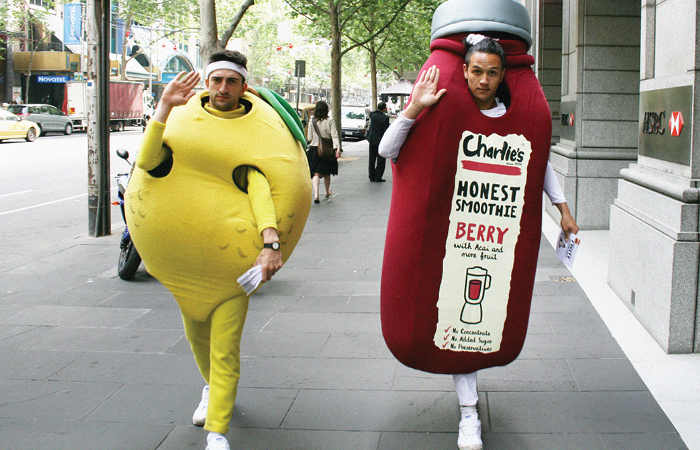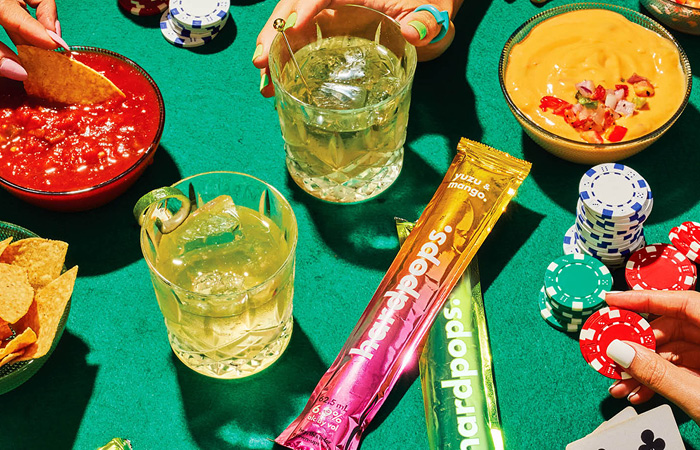ARTICLE / THE MAKING OF... SERIES
The making of...
Everipe
We all know what you’re thinking… does the world really need another smoothie? Well yes, if you’re Kerry Roberts, Co-Founder and Greg McMullen, Founder of Everipe who’ve not only road-tested their product in Greg’s family stores, but also sold out of their entire stock on QVC. But hey, don’t take our word for it.
Series
The making of... Series
Tags
Entrepreneurial
Start-up
Welcome to The making of... blog series. To start, can you give us a brief background into who you are and where you’ve come from?
Hello, we’re Kerry Roberts, the Co-Founder of Everipe and Greg McMullen, the Founder of the Everipe Smoothie concept. Greg’s a third generation grocer, his grandfather started Summerhill stores in Canada and they're known for putting the customer at the centre of everything they do. I started out in big CPG (Mondelez, Mars) and then met Greg and was blown away by his concept to create real-food smoothies in advance using the science of freeze drying to preserve produce.
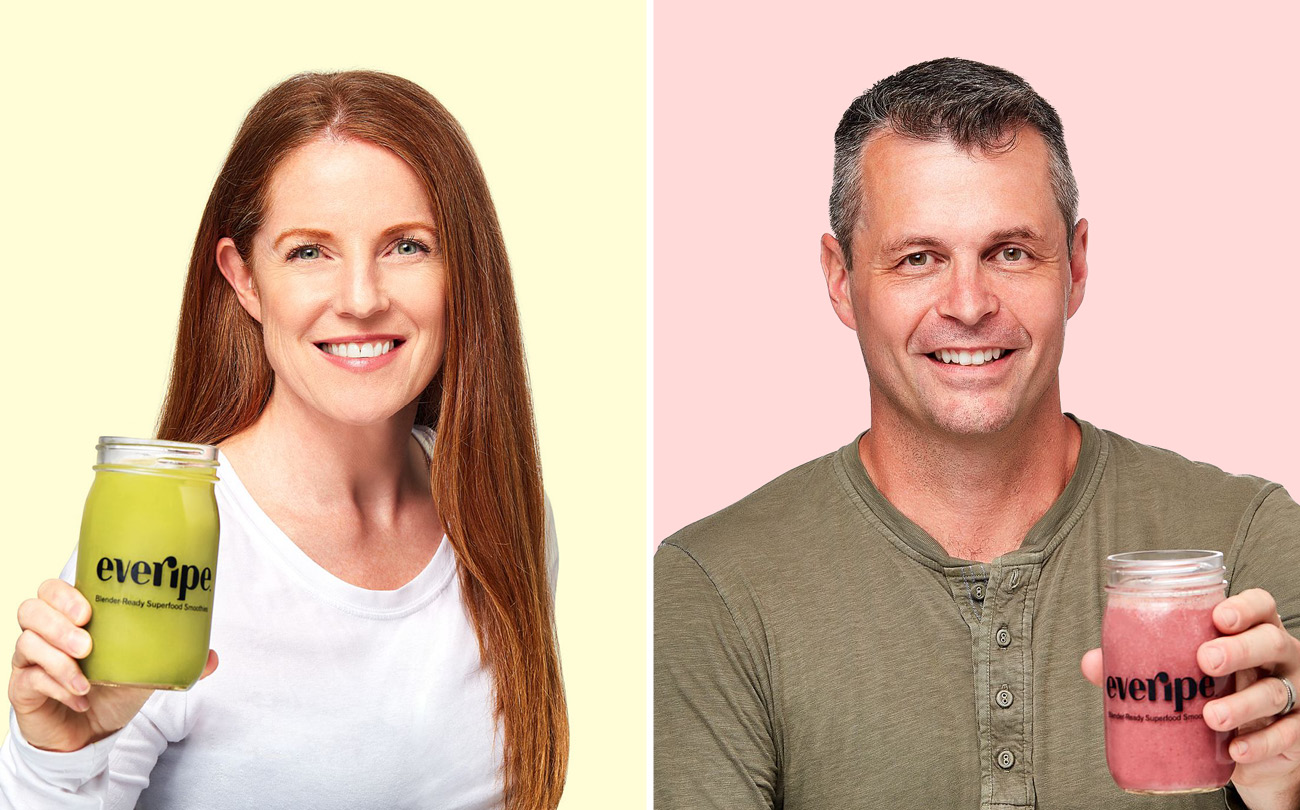
Founder Kerry Roberts, the Co-Founder Greg McMullen
Smoothies as a concept isn’t new… so what’s the big idea behind Everipe?
Everipe Smoothies let you create a ten ingredient, plant-based smoothie in seconds from your pantry. Just add one cup of ice and one cup of your favourite milk and blend.
Greg became a smoothie expert for his own nutrition but felt like he was baking a cake every morning before rushing out the door. Researching and gathering superfoods, chopping fruits and chasing spoilage - he figured there had to be an easier way to make smoothies in advance. He partnered with a local Chef and Holistic Nutritionist and freeze drying was the eureka that let them create a shelf-stable, preservative-free sophisticated smoothie that came together in seconds.
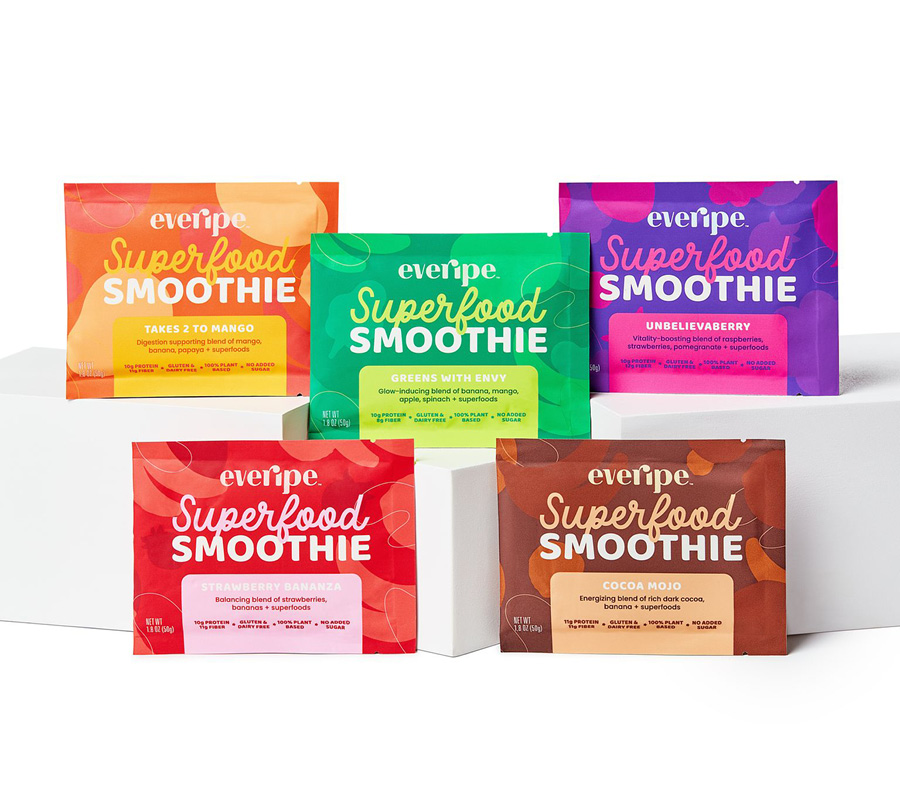
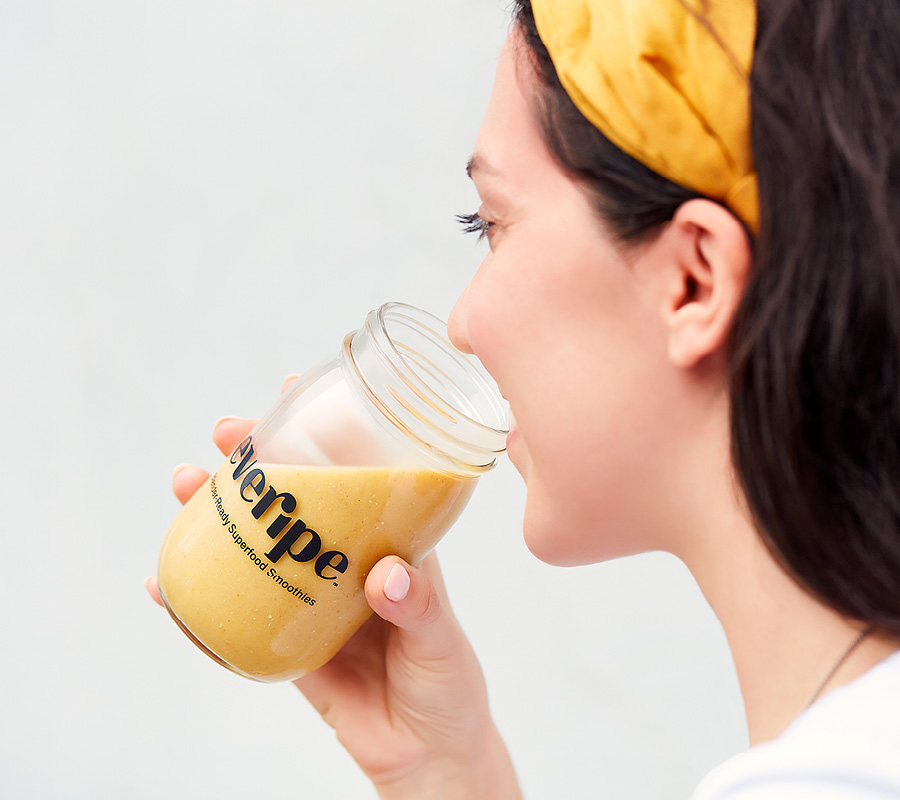
With speed, simplicity and nutrition as key ingredients to the Everipe smoothie, what research did you do to arrive at what you've got now? How did you test your product-market fit?
We conducted focus groups to understand breakfast routines, typical smoothie consumption and early messaging opportunity. We then iterated our recipes and conducted in-store sampling at Greg's family stores before working with a co-manufacturer to launch.
Using the family stores as the testing ground is a smart move, and why not? Can you tell us what the first iterations of your product were like? Was there much iteration in the process?
Our early product format consisted of whole pieces of freeze dried fruits and a small sachet of superfoods. This made the production process incredibly complex and consistency was a huge challenge. Repeats would be incredibly strong one run, then discouraging the next.
Complexity and consistency is something that definitely needs to be fixed in order to scale… but at the same time it can be costly. How has everything been funded?
We have been self-funded until very recently. Last year we partnered with a small VC firm that is focused on better aligning founder and investor needs - they've been a true thought partner and executional support.
With product readiness and VC partner, can you tell us about the branding?
Our branding and the name "Everipe" has been the one aspect that we've felt most proud of from day dot. The name was inspired by our freeze dried process which renders our fruits and vegetables 'forever ripe', it also gives a nod to vitality and how we want people to feel after drinking one.
We also recently rebranded to take all of our learning [product] forward: new recipes, new product format, new packaging, website, new everything! We're feeling much more confident that this rebrand offers the customer everything that they're looking for (more ease, better nutrition, even reduced pricing), while letting us feel better about our production quality.
We all know that the smoothie category is very competitive. Even with a great product and unique story, success can often come down to awareness. How are you getting the word out there to build the brand?
With this relaunch we are doubling down on organic awareness building - working with hundreds of influencers in the wellness and lifestyle space. We want people, no matter how busy they are, or how intimidated they are by superfoods, to feel like they too, can be smoothie people.
We are leveraging our cost efficient shipping (we're lightweight because we've removed all of the water from the product!) to focus on E-commerce via D2C, Amazon and other digital marketplaces. After learning that our customer profile was a bit older than we'd first anticipated, we forged a relationship with QVC and debuted the product just last week for a sellout first appearance.
The longer-term vision for brick ‘n’ mortar is our horizon plan once we have built some scale and deeper data on our customer profile so that we are prepared not just to land on-shelf, but to pull through as well.
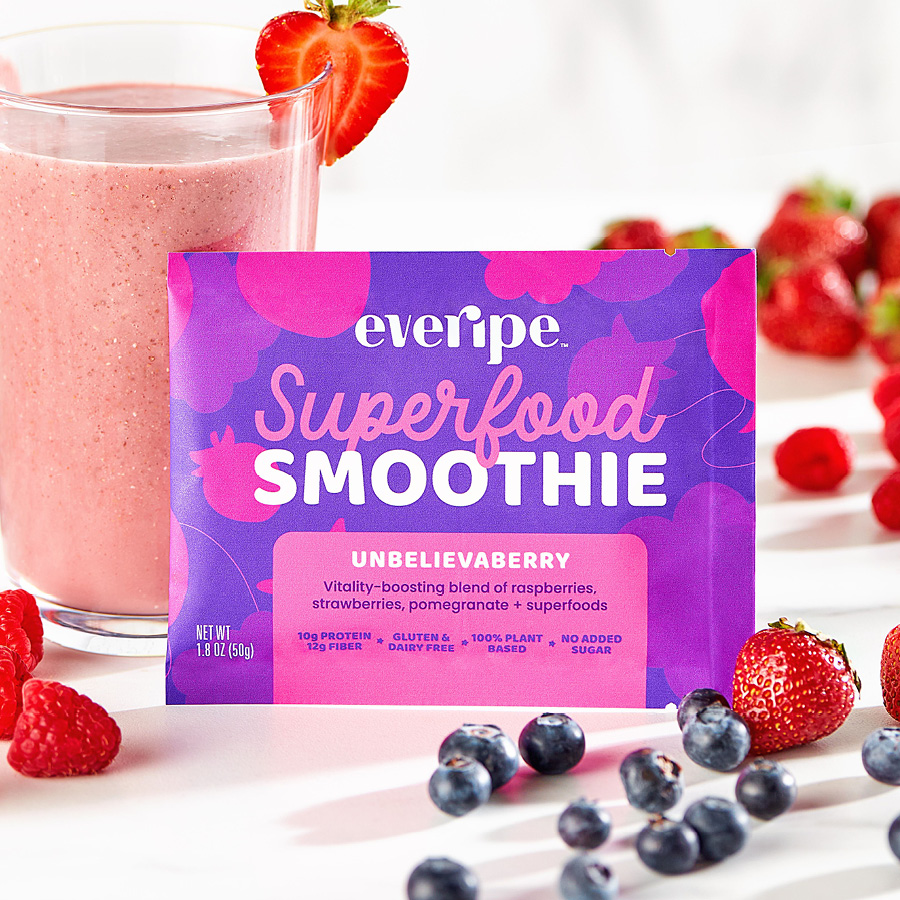
Congratulations on selling out on QVC. That’s awesome exposure for the brand and a good way to reach an audience that may have otherwise never heard about you. What about the future challenges? What would you say is the biggest challenge you'll face moving forward?
I think many founders believe that things get easier with growth and scale, but coming from big CPG I know that the problems just get bigger and more expensive! We'd like to stay disciplined about our growth and ensure that every new channel or retail account can be supported with the same excellent service that Greg's family stores offer. If we can't do that, we shouldn't take it on.
Being disciplined about growth is good. Knowing what you know now, what advice would you give another entrepreneur who is embarking on their own startup journey?
There are two pieces of advice that I use as constant reminders and I hope they're not cliché!
1. Fall in love with the problem you're solving, not your solution. Dive deep into your consumer, their goals and obstacles and be laser focused on facilitating their success, even if that means pivoting your product concept to better deliver that success.
2. Build an experiment - and THEN a business. Set small proof-points on the way to building a scaled business. Lay out the questions you need answered at each stage to keep going and the resources that you need for answers. Then be disciplined about pausing at each milestone to truly assess signals of viability. If you don't hit your goal in a particular stage, don't continue until you've adjusted for success.
